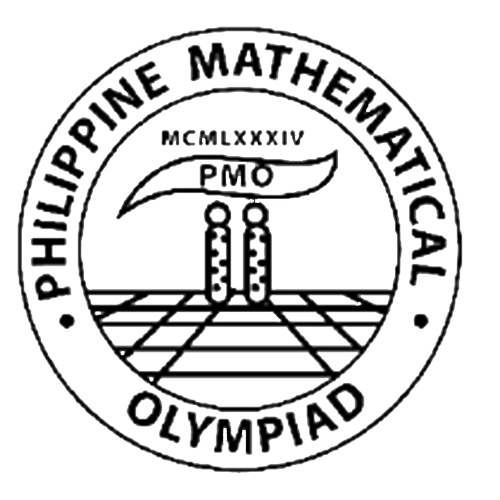This page will be updated soon! Stay tuned!
The Philippine Mathematical Olympiad
The Philippine Mathematical Olympiad is the oldest and most prestigious nationwide mathematics competition among secondary school students.
Objectives
The PMO aims to:
- stimulate the improvement of mathematics education in the country by awakening greater interest in and appreciation of mathematics among students and teachers and gaining insights into the levels of mathematics learning;
- identify and motivate the mathematically gifted;
- identify potential participants to the International Mathematical Olympiad;
- provide a vehicle for the professional growth of teachers; and
- encourage involvement of public and private sectors in the concerted promotion and development of mathematics education.
20th PMO Board of Directors
Director: Ma. Nerissa Masangkay Abara
Assistant Directors:
Jasmin-Mae Santos
Melvin Vidar
Len Patrick Dominic Garces
Treasurer: Victoria May Paguio
Secretaries: May Anne C. Tirado, Guey O. Ruiz
The PMO Director (2016-present)
 Dr. Ma. Nerissa Abrahan Masangkay is an associate professor of the Institute of Mathematics, College of Science, University of the Philippines in Diliman, Quezon City. Currently, she is the institute’s Deputy Director for Research. Her field of specialization is Matrix Analysis and she has published a number of papers in this area. She was one of the olympiad’s Assistant Director (16th – 18th PMO) before the MSP Board of Directors requested and appointed her as the new PMO director.”
Dr. Ma. Nerissa Abrahan Masangkay is an associate professor of the Institute of Mathematics, College of Science, University of the Philippines in Diliman, Quezon City. Currently, she is the institute’s Deputy Director for Research. Her field of specialization is Matrix Analysis and she has published a number of papers in this area. She was one of the olympiad’s Assistant Director (16th – 18th PMO) before the MSP Board of Directors requested and appointed her as the new PMO director.”
The PMO Director (2013-2016)
 Richard S. Lemence is an Associate Professor at the Institute of Mathematics, College of Science, University of the Philippines – Diliman. He was appointed by the Members of the Board of Directors of the Mathematical Society of the Philippines, one of the major sponsors of this prestigious nationwide mathematics competition for secondary schools students, as PMO Director in 2013. His fields of specialization include topological graph theory, differential geometry — specifically Riemannian and complex geometries; and Bioinformatics.
Richard S. Lemence is an Associate Professor at the Institute of Mathematics, College of Science, University of the Philippines – Diliman. He was appointed by the Members of the Board of Directors of the Mathematical Society of the Philippines, one of the major sponsors of this prestigious nationwide mathematics competition for secondary schools students, as PMO Director in 2013. His fields of specialization include topological graph theory, differential geometry — specifically Riemannian and complex geometries; and Bioinformatics.

Latest Comments